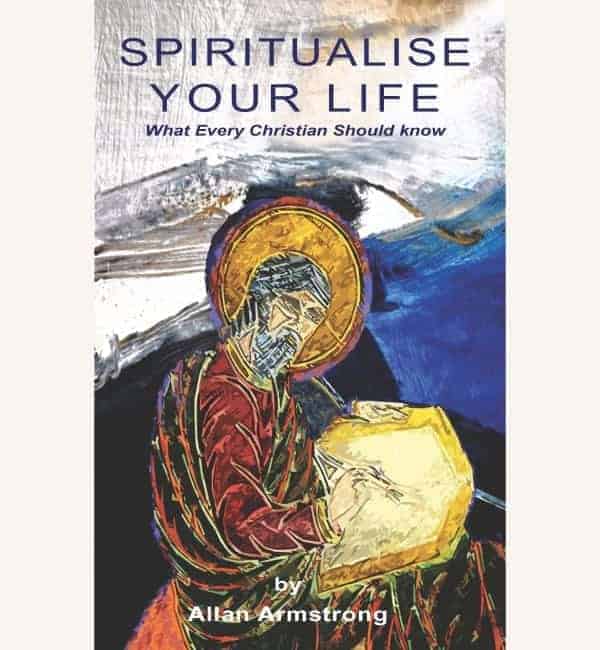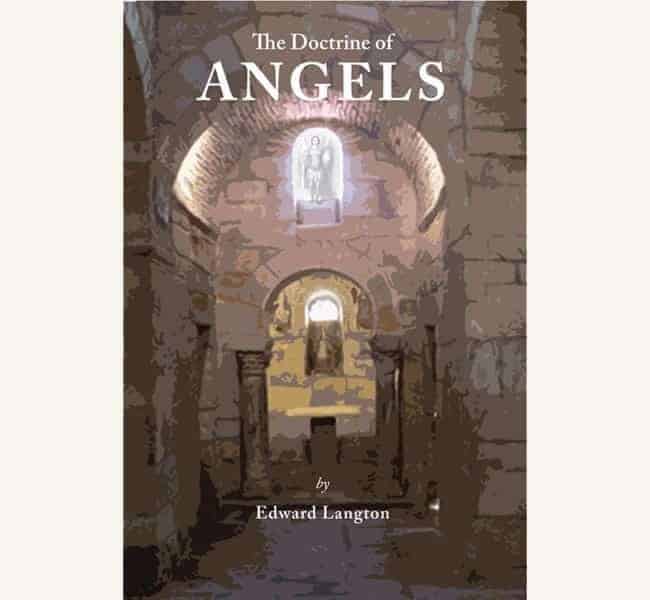
Spiritualise Your Life – What Every Christian Should Know
Spiritualise Your Life-What Every Christian Should Know was written as a follow-up to Notes on Meditation, which dealt mainly with
UK publisher of esoteric thought and radical spirituality

The Doctrine of Angels
There are records from the earliest times describing the existence and activities of the spiritual beings we call angels. In one form or another, accounts regarding their involvement in events taking place within human society are to be found in all religious cultures. The source material for these accounts reaches back in time through the Greco-Roman era into the ancient and diverse roots of the classical world. It is, however, a vast subject that is far beyond the scope of a single volume to embrace in its entirety. Thus, in this work Edward Langton, the author, discusses the nature of angels as understood in the historic Christian Church – outlining the teaching concerning angels which prevailed in the Church from the time of Augustine” and onwards. This objective he achieves admirably, and his work has influenced writers on the subject ever since its original publication in 1934. From the very beginning angels have played a significant role in the development of the Church. Indeed, both the Old and New Testaments are filled with narratives about the activities of angels in the lives of the faithful. It is, then, pertinent to ask the question ‘what are angels, where do they come from and what do they do?’
The word ‘angel’ is derived from the Greek αγγελος (Latin angelus) meaning a messenger. In Hebrew the word for ‘angel’ is Malak, also denoting a messenger. In popular terms the word signifies a supernatural intermediary between God and humanity. Thus, angels are heavenly messengers that have been sent to assist people, usually individuals, but sometimes groups or communities, in their duties and hardships. An angel can take the form of a vehicle of inspiration, a spiritual messenger, or a bearer of spiritual knowledge about human affairs. Although angels are considered by many to be ‘guardians’, protecting both humanity and individual people, and consequently perceived to be the personification of ‘sweetness and light’, they are also described as avengers and messengers of damnation. In the Book of Revelation, four angels stand prepared for the destruction of the world. They are, in the final analysis, divine messengers fulfilling God’s will.
Joshua Abelson describes angels as an: “…emanation of the Divine, an off-shoot of Deity, holding intimate converse with the affairs of the world.” In another passage, he speaks of “the immortal words (logoi) with which it is customary to call angels.” Herbert Lockyer, in his book The Mystery and Ministry of Angels, declares angels to be “…more ancient and majestic in creation than mankind; therefore, in the order of creation, mankind has been made a little lower than the angels.” He continues; “Among the hosts of heaven the angels are the principal part. They are expressly called the heavenly host and the armies of heaven, [Luke 2:13.] The angels might have been created with the heavens, seeing their nature is similar to the heavens, and their habitation is in the heavens.”
The teachings concerning angels presuppose that God is present and active in the world, a directing Mind, a controlling Will, an Immanent God. Philo’s doctrine emphasises this. Thus he says: “For God, not condescending to come down to the external senses, sends His own words (logoi) or angels for the sake of giving assistance to those who love virtue. But they attend like physicians to the diseases of the soul, and apply themselves to heal them, offering sacred recommendations like sacred laws, and inviting men to practice the duties inculcated by then, and, like the trainers of wrestlers, implanting in their pupils strength and power and irresistible vigour.”
Thus, the will of the transcendent and ‘unknowable’ Godhead is revealed in the world through the agency of the angelic host, who from the beginning have fulfilled, and continue to fulfil a significant role in the life and development of human society. It is through them that the immanent aspect of God is realised; giving a profound connotation to the meaning and function of the spiritual hierarchy acknowledged by the Church at large, which recognises and teaches that God is accessible through the presence of the Lord Jesus Christ – “I am the way, the truth, and the life. No one comes to the Father except through me.” ( John 14: 6.); through the work of the Holy Spirit – “God has revealed them to us through His Spirit…” (1 Cor. 2:10), and through the agencies of the heavenly hosts that form the spiritual hierarchies; concerning which there are many accounts in the New Testament of angelic assistance to those in need.
Alan of Lille, one of the most influential spiritual thinkers of twelfth century Europe, referring to the spiritual hierarchies, declares that there are “…orders of angels who receive from the Lord, as their function, the ministry of revealing lesser things and of announcing these things to humanity. These angels are sent to assist men and women in the course of their various duties and hardships. This order of spirits is believed to be deputized as watchful guardians of humanity. On account of this order there are those who keep the welfare of their brothers and sisters foremost in their minds.” With some variation such words as these may be accepted as being representative of the views of all the great luminaries of the Church up until the Reformation in the 16th century, and of many since. And it is to these great teachers that Edward Langton turns to present the teachings concerning angels, the real existence of which was ever an article of faith, supported by innumerable passages of Scripture.
In the first chapter of the book Langton outlines the teachings concerning angels that prevailed in the Church from the time of Augustine until the sixteenth century. During this time angels were understood to be spiritual beings of a higher order than man, belonging to an invisible ethereal and heavenly world, from which they exercise under God’s authority an influence upon mankind and the world at large. In the second chapter he explores the doctrines of the Reformed Churches, which essentially remained unchanged from that of the pre-Reformation Church, with the exception and exclusion of the veneration of angels and of scholastic speculations about them.In the third chapter Langton explores a more critical period of time, the nineteenth century and beyond, when the beliefs of the Church underwent a radical change in the light of the advances in secular thought, as a result of which the belief in spirits generally, and angels in particular, suffered greatly – he states that for the people of the modern world (1934) “…angels are a dead theological category.”
He speaks, I feel, with the deepest regret as it is clear in his writings that he has grave misgivings about the increasing secularization of our society. Were he alive today one wonders what his thoughts would be. It is clear that over the last two centuries our world has become intensely materialistic and mechanistic. We are surrounded, indeed overwhelmed by sensory experience. Our world is filled with noise and our minds are subjected to a non-stop succession of demands for our attention. Indeed, we have become the servants of a consumer and materialistic society, and the more materialistic we grow the more insensitive to spiritual experience and the spiritual life we become. For all that we know angels may be ‘all around us’ but we tend to remain blind to their presence. What Edward Langton has to say was relevant in his own time, and even more so in ours!
Click below to find out more about this book
http://imagier.co.uk/product/the-doctrine-of-angels/
[wp_social_sharing social_options=’facebook,twitter,googleplus’ twitter_username=’allan01202430′ facebook_text=’Share on Facebook’ twitter_text=’Share on Twitter’ googleplus_text=’Share on Google+’ icon_order=’f,t,g,l,p,x,r’ show_icons=’1′ before_button_text=” text_position=” social_image=”]

Spiritualise Your Life-What Every Christian Should Know was written as a follow-up to Notes on Meditation, which dealt mainly with

The Rose Priory Dialogues was a new and interesting challenge for me, and I must say, whether it is judged

It had occurred to me on several occasions that the teachings of many organisations, churches and mystical orders, are often

The Secret Garden of the Soul began its life in the mid 1980’s as a collection of personal notes intended
Sign up for our newsletter to make sure you find out about what’s new with Imagier Publishing